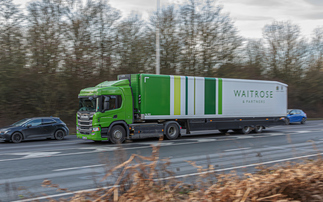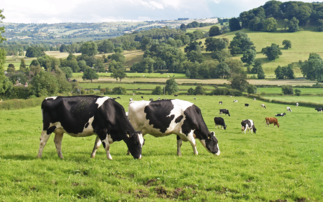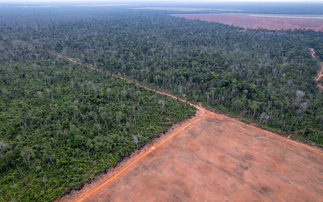Marks & Spencer chief executive Marc Bolland says consumers are increasingly demanding sustainably sourced products
Marks & Spencer and Unilever have today signed a new pledge committing to prioritise the development of sustainable palm oil, beef, paper and other commodities, as part of a major public-private partnership aimed at tackling deforestation.
M&S and Unilever, as co-chairs of the Consumer Goods Forum (CGF), said they would seek to reward those countries and jurisdictions with comprehensive policies designed to deliver more sustainable forest management.
A number of other CGF members are also expected to announce they are joining the scheme in the coming weeks, a Unilever spokeswoman told BusinessGreen.
Announcing the initiative at the COP21 climate change talks in Paris today, Marc Bolland, chief executive of M&S and vice chairman of CGF, said it is not sufficient that only 20 per cent of the world's palm oil today is sustainably certified.
"We have learnt that working alone in our own supply chains is not enough," he said. "We need partnerships to solve the deforestation crisis at a whole landscape level. It is about produce and protect."
Around 12 million hectares of forests are destroyed by human activity and natural disasters such as wildfires each year, with this loss responsible for around 11 per cent of the world's greenhouse gas emissions.
Forestry issues are playing a prominent role during the first few days of the Paris climate change talks. Yesterday, Germany, Norway and the UK, signed a memorandum of understanding to provide $5bn to support forest programmes from 2015 to 2020, if forest countries can demonstrate measured, reported, and verified emission reductions.
Prince Charles also today called for better protection of the world's forests, warning too many companies are ignoring their contribution to deforestation. "Encouraging though the progress made to date has been, it remains the case that many of the world's largest companies - and their financial backers - pay scant, by which I really mean no, attention to the deforestation footprint of their supply chains," he said. "Unsurprisingly perhaps, this is especially true in markets where there is limited consumer pressure to do the right thing."
The UN-backed REDD+ (Reduction of Emissions from Deforestation and Degradation of forests) programme is expected to be finalised here in Paris after 10 years of talks, delivering a new mechanism for channelling funding to forest nations that leave trees standing through a system of carbon credits.
Meanwhile, 42 major companies working under the We Mean Business Coalition, have pledged to remove commodity driven deforestation from all supply chains by 2020, 10 years ahead of the global goal announced last year to phase out net deforestation by 2030.
Speaking to reporters after the launch of the CGF initiative, Bolland said consumers were increasingly demanding sustainably sourced products, and therefore retailers' efforts to drive deforestation out of their supply chain would not impact negatively on their competitiveness.
"When it's properly sourced and properly done, it can still also be an extremely good product," he said.
The corporate initiative announced today has been supported by the US Interior Department. Speaking this morning, Sally Jewell, Secretary of the Interior, said businesses and governments would need to work together to tackle the issue of deforestation.
"This public-private partnership is a true model for how we can proactively work together to address climate change," she said. "The partnership tackles major and complex issues. We lose an average of 3.3 million hectares of forest each year even after restoration, and that's an area about the size of South Africa. Our challenge is to come together here in Paris and in the years to come to secure forests' role in addressing climate change because we all need to take action.
Meanwhile, the World Resources Institute (WRI) and partners today launched a new tool - Global Forest Watch Climate - to measure countries' emission from tropical deforestation and track their progress towards meeting climate targets.
Major forest countries, including Brazil, Colombia, Paraguay, Indonesia and Liberia, have all put forward national plans to reduce emissions from deforestation as part of their submissions to the UN ahead of the Paris conference.
They will be hoping that the eventual Paris Agreement and accompanying public-private initiatives will help them deliver on their goal of eventually making net deforestation a thing of the past.
This article is part of BusinessGreen's Road to Paris hub, hosted in association with PwC.
In light of further information from Unilever, this article was changed to confirm that only M&S and Unilever have signed up to the initiative so far.










